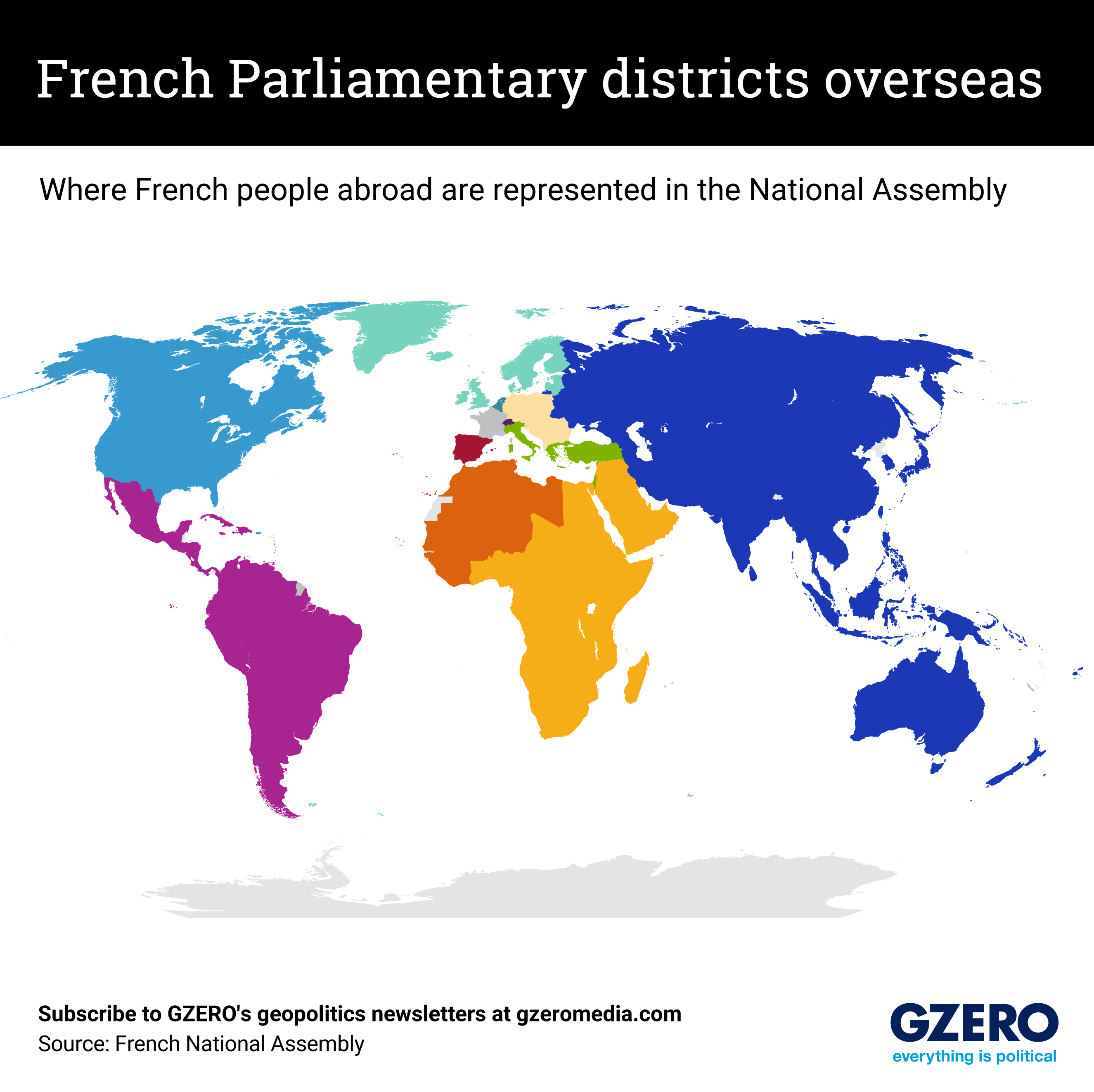November 15, 2023
For citizens of most democracies, moving overseas usually means losing some political representation back home. For example, Americans abroad can still vote in their home states – but it’s not as though any senators or representatives feel particularly beholden to the expat constituency.
Not so for the 2.5 million French citizens living overseas: Article 24 of the French Constitution specifically mandates they be represented in the legislature. So the French National Assembly divides the world – save North Korea, the disputed territory of Western Sahara, and, somewhat inexplicably, Bhutan – into 11 constituencies that each send one fully empowered legislator back to Paris.
French expats are also represented in the Senate, albeit indirectly. Voters elect 442 “advisers to French citizens abroad” to serve six-year terms as a kind of community liaison between ordinary expats and the local French Embassy or consulate (you might recall one of these folks was recently kidnapped in Niger). Of that body, 90 are elected to sit on the Assembly of French Citizens Abroad, a long-standing committee that meets four times a year to advise the French government on foreign affairs. They then meet with 68 separately elected “consular delegates” to choose 12 senators with full lawmaking powers.
Complicated, sans doute, but it means that French citizens overseas have hundreds of elected representatives working on their behalf, whereas most other expats don’t have much of a voice back home. The graphic above illustrates where France draws the lines of its overseas legislative districts.
_____
GZERO's Ian Bremmer recently sat down with Eléonor Caroit, who represents French citizens in Latin America through one of the 11 National Assembly seats noted above, at the 2023 Paris Peace Forum. They discussed protecting democracy from some dangerous applications of artificial intelligence alongside Rappler CEO Maria Ressa and Microsoft Vice Chair and President Brad Smith. Check it out here.
More For You
The US and Israel have weapons and defense systems that are far more sophisticated than Iran’s. Precision missiles. Advanced radar. Missile defense systems stacked on top of each other.
Most Popular
What's Good Wednesdays
What’s Good Wednesdays™, March 4, 2026
Walmart sponsored posts
Walmart’s $1 billion investment is strengthening associate careers
German Chancellor Friedrich Merz holds the framed birth certificate of U.S. President Donald Trump's grandfather as Merz and Trump shake hands during a meeting at the White House in Washington, D.C., U.S., June 5, 2025.
REUTERS/Kevin Lamarque
You probably know some of the more familiar German words in English: Schadenfreude, say. Or Angst. Maybe Realpolitik. And if nothing else: Hamburger.
Last week, Microsoft announced it had surpassed its goal of expanding internet access to 250 million people worldwide, reaching more than 299 million, including over 124 million across Africa. The milestone underscores how connectivity is becoming a foundation for economic participation and geopolitical competitiveness in the AI era. Microsoft is evolving its approach to digital access to focus not only on coverage, but on adoption, enablement, and long-term participation in the AI economy, including a new collaboration with Starlink aimed at reaching rural and hard‑to‑reach communities. Read the blog to learn more.
© 2025 GZERO Media. All Rights Reserved | A Eurasia Group media company.
